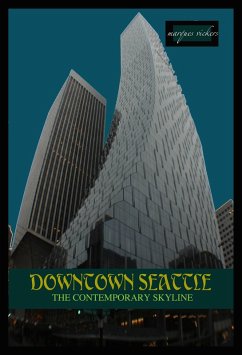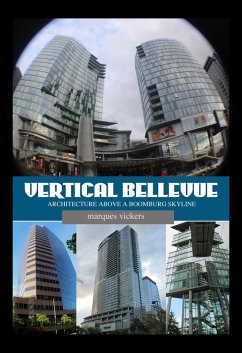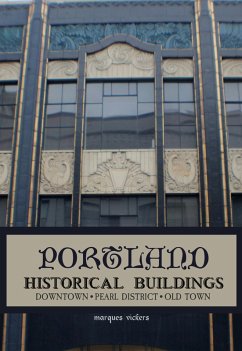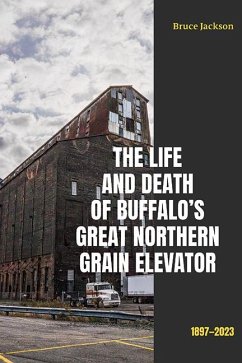
Lake Union: The Public Face of Prosperity (eBook, ePUB)

PAYBACK Punkte
0 °P sammeln!
This edition is an ongoing architectural pictorial survey of Seattle's Lake Union district. Documenting the city's explosive growth downtown, the profiled mid-rise and high-rise developments cover the period of 2016-2023. The photography captures the projects from a variety of completion stages and perspective angles. The Lake Union sector was historically composed of single storied shops, residential dwellings, light industry and boatyards. Lake Union is a freshwater passage contained entirely within Seattle's city limits. It was originally formed by the melting of the Vashon Glacier waters a...
This edition is an ongoing architectural pictorial survey of Seattle's Lake Union district. Documenting the city's explosive growth downtown, the profiled mid-rise and high-rise developments cover the period of 2016-2023. The photography captures the projects from a variety of completion stages and perspective angles. The Lake Union sector was historically composed of single storied shops, residential dwellings, light industry and boatyards. Lake Union is a freshwater passage contained entirely within Seattle's city limits. It was originally formed by the melting of the Vashon Glacier waters and officially named by Seattle pioneer Thomas Mercer in 1854. Mercer correctly forecasted that with effective damming and canals, the eventual union of Lake Washington and Puget Sound could be completed. The Duwamish and Chinook native tribes called the body small waters. The Boeing Corporation initiated production facilities in 1916. The shoreline for decades remained principally shipyards, wharfs, sawmills and diminutive restaurant and retail outlets. The high technology industry has completely altered the commercials emphasis. The chronic Seattle housing shortage has accentuated a similar boom for elevated residential properties. The city of Seattle appears to be playing infrastructure catch-up. Numerous additional developments under construction and in the planning stages will test the resiliency of the boom era. Optimistic visions towards a vibrant downtown core continue forward. With each subsequent monolith downtown, Seattle solidifies its claim as a building showcase of twenty-first century architecture design, credibility, and stature. Growth has remained an insatiable surge for the high technology industry to maintain its frenetic pace. Perhaps soon, Seattle and such a volatile industry will arrive at a crossroad where sustaining such expansion becomes problematic and difficult to sustain. The Lake Union shoreline has become forever changed. Most of the completed high-rise buildings featured in this edition are less than twenty years old. More are anticipated and currently in diverse stages of planning and completion. With the nature of commercial and remote employment evolving, can the occupancy rates maintain the financial equilibrium necessary the keep these projects solvent and profitable? The contemporary project designs are primarily compositions of steel, glass, and concrete creating innovate structural geometry and exterior skins. The most notable shift within in Lake Union district has occurred since the beginning of this illustrated directory. In the area of Seattle's Denny Triangle, larger monolithic structures have begun to tower over the more modest Lake Union shoreline mid-rises. Amazon has expanded their corporate growth and base, but in some instances to the detriment of Seattle. Their demand for office space has shifted to Bellevue with several completed projects and others nearing completion. The future is less certain for the Lake Union district than four years ago, but at the present time, still generally optimistic.
Dieser Download kann aus rechtlichen Gründen nur mit Rechnungsadresse in A, B, CY, CZ, D, DK, EW, E, FIN, F, GR, H, IRL, I, LT, L, LR, M, NL, PL, P, R, S, SLO, SK ausgeliefert werden.













